Meditation and yoga can exercise your vagus nerve and may improve your mental health

Maybe you turn to carbs and bad reality TV when you’re stressed. Or maybe your go-to is to rack up your credit card in the name of retail therapy. Or maybe you go full-on goblin mode and hide out until the world calms itself.
Advertisement
Cleveland Clinic is a non-profit academic medical center. Advertising on our site helps support our mission. We do not endorse non-Cleveland Clinic products or services. Policy
Still not working?
Here’s a new idea: Try stimulating your vagus nerve (pronounced the same as Las “Vegas”). It’s your body’s source of calm and balance. And it may hold the key to helping you respond better to stressful situations. And can’t we all use more of that?
We talked with integrative medicine physician Yufang Lin, MD, about what the vagus nerve is and its role in managing stress and anxiety.
The vagus nerve is part of your parasympathetic nervous system. It carries electrical signals between your brain and body. Its main role is to control automatic functions, such as breathing, heart rate and digestion. That makes it an important connection between your mind and body. Your vagus nerve helps disengage your sympathetic nervous system — your fight-or-flight response.
“When you’re stressed or scared, your heart rate and blood pressure increase, and you become focused on survival,” Dr. Lin explains. “Being in that stressful ‘fight-or-flight’ state can wear out your body. The parasympathetic nervous system and vagus nerve bring you back to a stable state when the stress is over.”
In other words, your fight-or-flight response is important when you’re actually in some kind of physical danger. But when it jumps into gear in situations that aren’t a matter of life or death, it taxes your body and your mind. Activating your vagus nerve and the rest of your parasympathetic nervous system is a cue to your body that it’s not in mortal danger. That allows you to calm down and relax.
Advertisement
During a state of danger, stress or excitement, your sympathetic nervous system starts ringing alarm bells all over your body that something is wrong and you need to prepare for battle. These messages send your brain and body into survival mode, priming you to react quickly. When the threat has passed, your brain sends signals through the vagus nerve to relax the tension.
The problem is that the fight-or-flight response doesn’t know the difference between immediate danger and life stresses that come at us every day.
Imagine this: You’re an early human. You spot a tiger in the woods that’s about to pounce. Your sympathetic nervous system kicks in and you prepare to (somehow) fight off the tiger. Then, the tiger wanders off. And then your body downshifts from the stress of almost being eaten. That’s what the sympathetic nervous system is for. To prepare us to fight for our lives (or find a way to get out of danger.)
But today, most of the threats we face in life aren’t tiger-shaped. Today, your fight-or-flight reaction is activated not only during dangerous situations — like that white-knuckle feeling of driving on an ice-covered road — but also by more emotionally charged threats, like:
Unlike the tiger who slinked back into the jungle and left you to go back to your day, these threats remain part of our lived experiences. They stay with us day in and day out. And so do the stress and anxiety that come with them, courtesy of our fight-or-flight response.
“If your parasympathetic nervous system doesn’t stabilize and calm you, you may be living in a constant state of anxiety,” states Dr. Lin. “You are also at higher risk of other health problems, such as high blood pressure, heart disease and Type 2 diabetes.”
That’s where the vagus nerve comes into play. A healthy vagus nerve can rapidly offset your body’s stress response. It can help reduce anxiety and improve your overall health, if you know how to put it in motion.
Vagus nerve stimulation can improve vagal nerve tone and your ability to respond to stress. With vagus nerve stimulation, you intentionally counteract the signals that cause anxiety.
Basic healthy living strategies help activate your vagus nerve. That includes things we hear about all the time, like getting a proper amount of exercise, following a diet that’s healthy for you and getting enough sleep.
Advertisement
Additionally, there are a few exercises and practices that Dr. Lin says may improve your emotional regulation. They give you more energy to cope when stressful situations come your way. In other words, they give your vagus nerve a chance to do its job to reduce stress and anxiety. They include:
“When you repeat these activities over time, you increase heart rate variability and strengthen your vagus nerve function,” says Dr. Lin. “Then, the next time your sympathetic nervous system responds to a trigger, you can recover faster.”
The most widely studied measure of how well your vagus nerve is working is your heart rate variability. Heart rate variability is the variation (differences) in the time between your heartbeats.
When you have a stronger vagal tone, your heart rate variability is higher. People with a weaker vagal tone have a heart rate that is less variable.
“Higher variability shows that your heart is constantly reacting to your environment through your sympathetic and parasympathetic nervous systems,” says Dr. Lin. “It suggests these systems are well balanced and can adapt to the changes around you. Studies have shown that people with higher heart rate variability have reduced heart disease, increased brain function and a more stable mood.”
Advertisement
Even in people with a high heart rate variation, the differences are very small — only fractions of seconds. Many commercially available mobile health devices can check heart rate variability. These devices may use a chest strap or clip to your ear or finger. Some fitness watches also measure heart rate variability, but may not be as accurate.
Most people can (and are encouraged to) practice calming activities that trigger their vagus nerve. As you try activities to strengthen your vagus nerve, pay attention to how you feel. If you become lightheaded, slow down or stop what you are doing until you feel better.
Advertisement
Learn more about our editorial process.
Advertisement

The longest cranial nerve in your body plays a role in your health
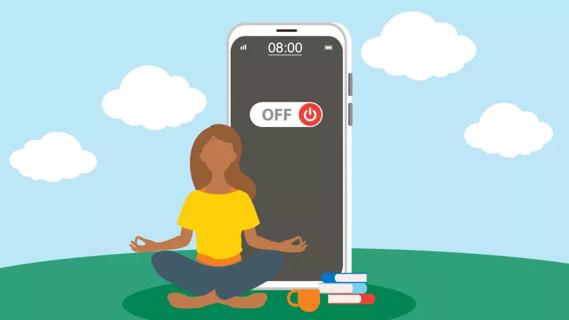
Identify your triggers, set ground rules for your break and start practicing mindfulness
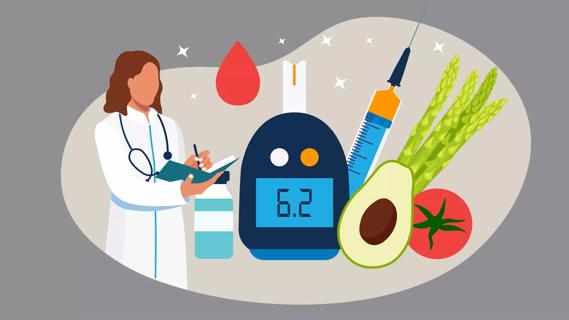
A diabetes diagnosis, new or long-standing, can trigger reactions like grief, stress, depression and frustration, but symptom relief and help are available

Too much screen time and unrealistic expectations and perceptions and can lead to an increased risk of anxiety and depression
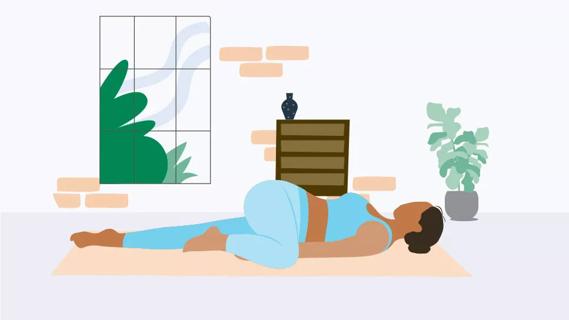
This mindful practice is designed to give you mental and physical relaxation

Although different conditons, they can occur together or cause one another
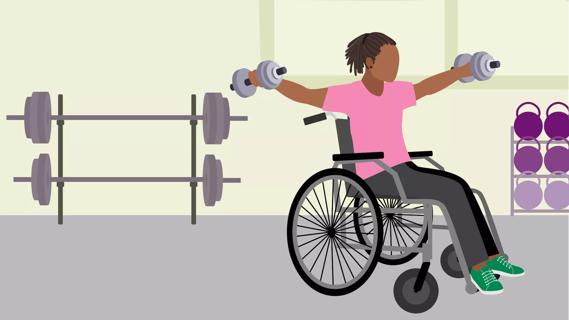
Resolve to move a little more, drink a little less, eat a little healthier, sleep a little better and destress a lot
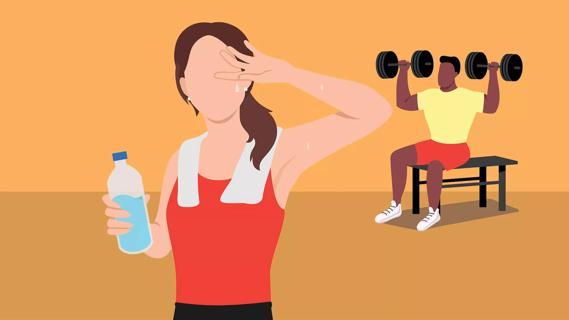
If the thought of the gym sends you spiraling, do some prep work beforehand and bring a friend along for support

Type 2 diabetes isn’t inevitable with these dietary changes

Applying a hot or cold compress can help with pain